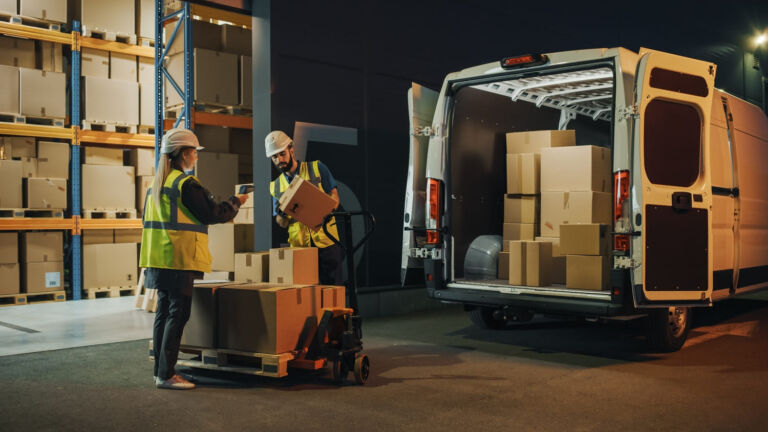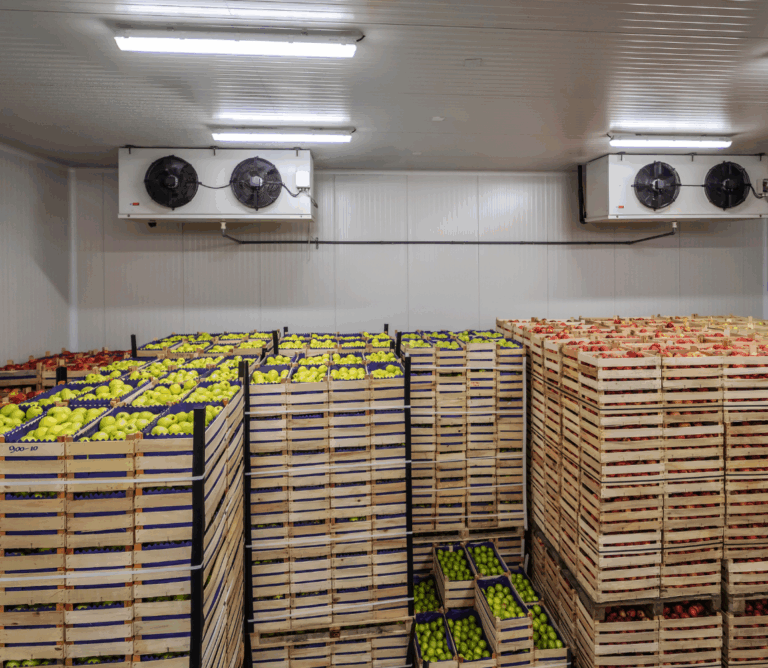Ecommerce Warehouse: What Is It and How to Find One?

In today’s fast-paced digital marketplace, efficient ecommerce warehousing is pivotal for timely order fulfillment and customer satisfaction. Whether you’re a budding online retailer or an established ecommerce giant, understanding and selecting the right warehousing solution can significantly impact your business’s success.
What Is An Ecommerce Warehouse?
An ecommerce warehouse is a storage facility that holds products sold through online stores. Unlike traditional warehouses, these facilities are optimized for speed, accuracy, and high-volume order fulfillment. They’re the engine behind quick delivery, efficient returns, and satisfied customers.
Whether you’re a growing retailer or an established brand, partnering with the right warehouse for ecommerce ensures seamless operations—especially during peak sales seasons.
What Are The Benefits Of Ecommerce Warehouses?
Ecommerce warehouses are located across the country. This is advantageous for ecommerce retailers, since they can choose where to store their inventory. When products are closer to customers, shipping times are minimal, orders are received faster, and customer satisfaction increases.
Merchandise is organized when stored in an ecommerce warehouse. Organization is streamlined in these facilities due to real-time inventory tracking, shipment tracking, and trained labor forces who pick and pack with accuracy. The technology in ecommerce warehouses enhances customer experiences.
Growing businesses value time, which equals money. Delegating the order fulfillment process to a reliable ecommerce warehouse frees up a retailer’s time so they can focus on marketing and innovations. The time savings often offset the cost to utilize an ecommerce warehouse.
An ecommerce business can go awry without the services of an ecommerce warehouse. For example, inventory can become lost without the warehouse’s advanced management system. Incorrect orders may be shipped, and space can run out, especially in home garages or in-house storage.
What Are Different Types Of Ecommerce Warehouses?
Ecommerce businesses have access to a wide variety of warehouse types, each catering to specific storage and operational needs. Here’s a breakdown:
Fulfillment Centers
Fulfillment centers manage short-term storage and handle order processing, packing, and shipping directly to customers. Often operated by third-party logistics (3PL) providers, these centers are crucial for ecommerce businesses seeking fast and efficient fulfillment solutions.
Distribution Centers
Distribution centers serve as hubs in the supply chain, acting as intermediaries between manufacturers and retailers or fulfillment centers. They are commonly used in industries like grocery and often provide specialized storage options, such as refrigeration.
Private Warehouses
Private warehouses are owned and operated by a single business to store its own inventory. These facilities provide greater control and customization but come with higher costs, making them ideal for larger companies with consistent storage needs.
Public Warehouses
Public warehouses are shared spaces owned by third-party operators and rented out to businesses. They are cost-effective for small to medium-sized ecommerce companies and may include fulfillment services for an additional fee.
Cooperative Warehouses
Jointly owned by multiple businesses, cooperative warehouses offer discounted storage rates to co-op members. These facilities are often used by smaller companies seeking cost-effective storage solutions.
Smart Warehouses
Smart warehouses use advanced technologies such as AI, robotics, and drones to streamline storage and retrieval processes. These high-tech facilities reduce errors and improve efficiency but require significant investment, making them a premium option.
Government Warehouses
Owned by federal, state, or local governments, these warehouses store essential goods and supplies. Businesses can also rent space, benefiting from secure and affordable storage, though these facilities may lack advanced technology.
Cold Storage Warehouses
Cold storage warehouses maintain temperature-controlled environments, making them essential for storing perishable goods such as food and pharmaceuticals.
Hybrid Warehouses
Hybrid warehouses combine features of multiple warehouse types, such as offering both fulfillment and temperature-controlled storage, to meet diverse business needs.
Cross-Docking Warehouses
Cross-docking warehouses focus on minimizing storage time by transferring goods directly from inbound to outbound transportation. This type of facility is ideal for ecommerce businesses that prioritize fast delivery and low inventory holding costs.
How to Choose the Right Ecommerce Warehouse

Finding a local warehouse for ecommerce or a commerce fulfillment warehouse doesn’t have to be overwhelming. Follow these steps:
1. Determine Your Spatial Requirements
Calculate how much space you’ll need based on current inventory and turnover. Are you storing thousands of SKUs or just a few? This affects warehouse size and layout.
2. Look for Essential Equipment
Does the warehouse offer shelving, forklifts, packaging stations, or refrigeration (if needed)? If you sell bulky or fragile items, proper equipment is crucial.
3. Use a Warehouse Management System (WMS)
Ensure the facility uses a modern WMS that offers:
- Real-time inventory tracking
- Automated alerts for low stock
- Optimized picking and packing workflows
4. Consider the Location
Search for an ecommerce warehouse near me to reduce last-mile delivery times. Or consider multiple facilities to serve customers regionally for faster shipping.
5. Analyze Performance Data
Look at historical data or ask about:
- Average fulfillment time
- Order accuracy rates
- Return processing workflows
This helps ensure the facility supports your goals.
Common Challenges in Ecommerce Warehousing
Even the best ecommerce operations face challenges. Here’s what to watch for:
- Shipping Delays: A poor layout or lack of inventory visibility can slow shipments.
- Inventory Overflow or Stockouts: Avoid under- or over-ordering with data-driven inventory forecasting.
- Return Management: Ensure your warehouse can inspect, restock, or dispose of returned goods efficiently.
Why Use OLIMP to Find an Ecommerce Warehouse?
OLIMP Warehousing connects businesses with a vast network of over 5,000 warehouses across North America. Our platform offers:
- Flexible Solutions: No minimum storage terms and adaptable warehousing options.
- Real-Time Access: Quickly find and book warehouse space as per your requirements.
- Expert Support: Dedicated managers assist in finding the perfect warehousing solution for your business.
Ready to optimize your ecommerce fulfillment? Explore OLIMP Warehousing solutions today.
You may be interested in

Refrigerated Transportation: Keeping Your Goods Fresh and Safe
In today’s fast-paced supply chain, the demand for refrigerated transportation is higher than ever. Businesses need to move fresh produce, dairy, frozen foods, and pharmaceuticals across long distances while preserving their quality. Refrigerated freight shipping (also known as reefer shipping) provides the solution by using temperature-controlled trucks and containers to keep perishable goods transportation safe […]

Impact of E‑Commerce on Warehousing & Fulfillment: Trends, Challenges and the Future of Logistics
The explosive growth of e‑commerce has turned warehouses into the heartbeat of customer experience. Global online retail sales are forecast to exceed $6.5 trillion by 2025, and the number of digital buyers is expected to reach 2.6 billion. Shoppers now demand same‑day or next‑day delivery and real‑time tracking; studies show that 68 % of online shoppers consider delivery […]

Shipping Perishable vs Non‑Perishable Products: Complete Guide (2025)
Shipping isn’t a one‑size‑fits‑all process. Products that spoil quickly-fresh produce, dairy, meat or pharmaceuticals-are highly sensitive to time and temperature. These perishable goods require cold‑chain logistics and rapid delivery to stay safe for consumers. By contrast, non‑perishable items like canned foods, grains, household goods or electronics can tolerate longer transit times and room‑temperature storage. Understanding […]
Ready to streamline your warehousing needs?
Request a quote today and discover how OLIMP's tailored solutions can optimize your operations